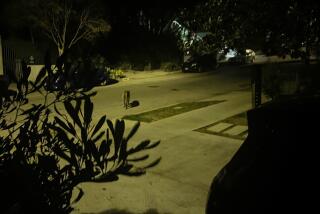Mountain lion’s revenge
The mountain lion hunt that put California Fish and Game Commission President Daniel W. Richards in the center of a political firestorm has him in trouble again.
The enforcement chief for the state’s Fair Political Practices Commission informed Richards on Thursday that he had violated the gift limits of the Political Reform Act when he went on the Idaho hunt but failed to pay the fee that the Flying B Ranch usually imposes. Richards eventually reimbursed the ranch $6,800 on March 5, but he did it after the expiration of the 30-day time period that state officials are given to pay back the value of an illegal gift, and after a complaint had already been filed with the FPPC. Under the law, the legal limit for gifts is $420.
Richards could have been fined up to $5,000, but because he paid the cost of the January hunting expedition not long after the time limit expired, he was given a written warning instead. Richards has steadfastly maintained that the hunt was not a gift because he was at the ranch on business when a guide invited him to join the hunt — organized for the purpose of killing a mountain lion that was harming deer — and because the ranch didn’t charge him.
We’ve said before that Richards’ mountain lion hunt was distasteful — hunting such animals is outlawed in California — but perfectly legal because it took place in Idaho. He should not be forced to resign his position on the Fish and Game Commission over the issue, as some critics have suggested. But as the president of a state commission, Richards should be held to the highest ethical standards for the state’s public officials and be acutely aware of the rules.
Public officials seem frequently to beg forgiveness or plead ignorance for their transgressions only after they’ve been caught. How many times have we heard of politicians who refund campaign contributions from unseemly donors only after they have been pointed out in the media, or who offer tearful public apologies for behavior that didn’t seem to bother them until it was revealed?
Gary Winuk, the FPPC’s enforcement chief, points out that Richards’ penalty was consistent with the way the commission treats other officials caught in the same situation. But maybe it shouldn’t be so lenient.
Richards should have known that he was accepting a freebie that exceeded the gift limit by thousands of dollars. That disparity alone should have triggered a fine and sent a message to Richards and others that it’s not acceptable to violate the rules and pay later.
Too bad the mountain lion wasn’t let off with a warning.
More to Read
A cure for the common opinion
Get thought-provoking perspectives with our weekly newsletter.
You may occasionally receive promotional content from the Los Angeles Times.










